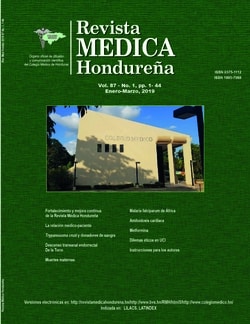Ethical dilemmas in clinical practice in the intensive care units and cardiorespiratory arrests
DOI:
https://doi.org/10.5377/rmh.v87i1.11936Keywords:
Surgery, Ethics, Clinical ethics, Gynecology, Obstetrics, Unnecessary proceduresAbstract
Background. Bioethics understands that any therapeutic or diagnostic proposal must define the goal to be achieved, the benefit to be obtained and the risks to be faced. It requires knowing the natural history of the disease and its complications, as well as estimating the chances of success and failure adjusted to each patient in particular. Sources: The bibliographic search was carried out using the search engines Medline, ProQuest, SCOPUS, using the keywords “ethics in the surgical act”, “bioethics”, “clinical ethics”, “ethics in obstetrics”, “therapeutic abortion”, ethical considerations in pregnancy and cancer “” ethics and oncological surgery “” ethical dilemmas in anesthetic practice “, both in Spanish and English. The search was limited from 2014 to 2018. The most cited models are those included in the present review. Development: The ethical behavior should not only be limited to the surgical act, but to all the behavior of the surgeon, accepting that all their acts must be ethically valid, from the clinical study of the patient and the request of the auxiliary diagnostic studies based on a Rationale criteria up to the information given to the patient and family, the surgery and postoperative surveillance Conclusions: Every day we face ethical dilemmas so it is evident the need to continuously train in these subjects to health personnel both medical, nursing and all staff that has contact with patients in order to avoid therapeutic cruelty and achieve the maximum well-being of the patient and their family members, from an integral point of view.The main and initial ethical obligation of every doctor is to be prepared.
Downloads
1701




